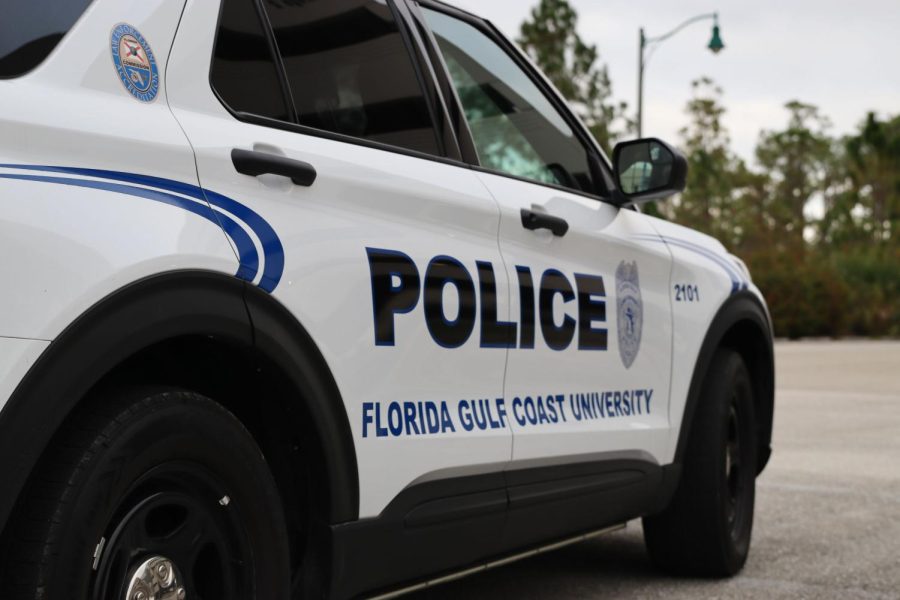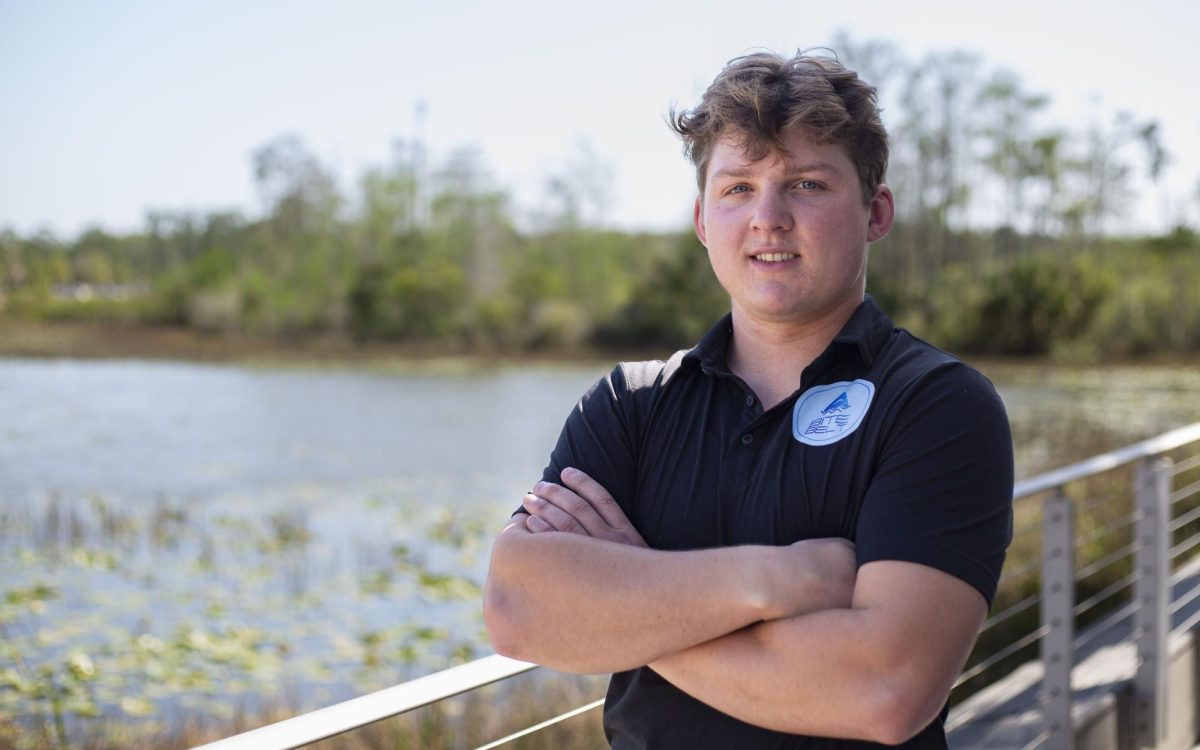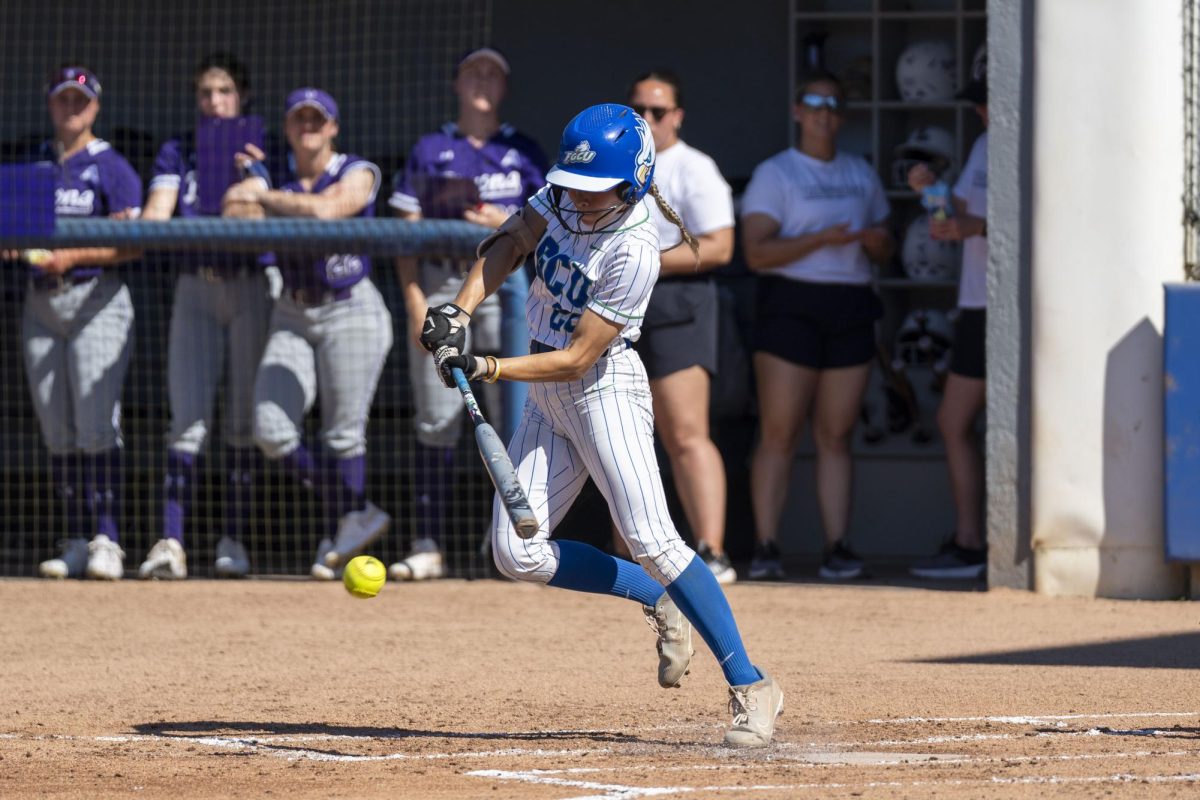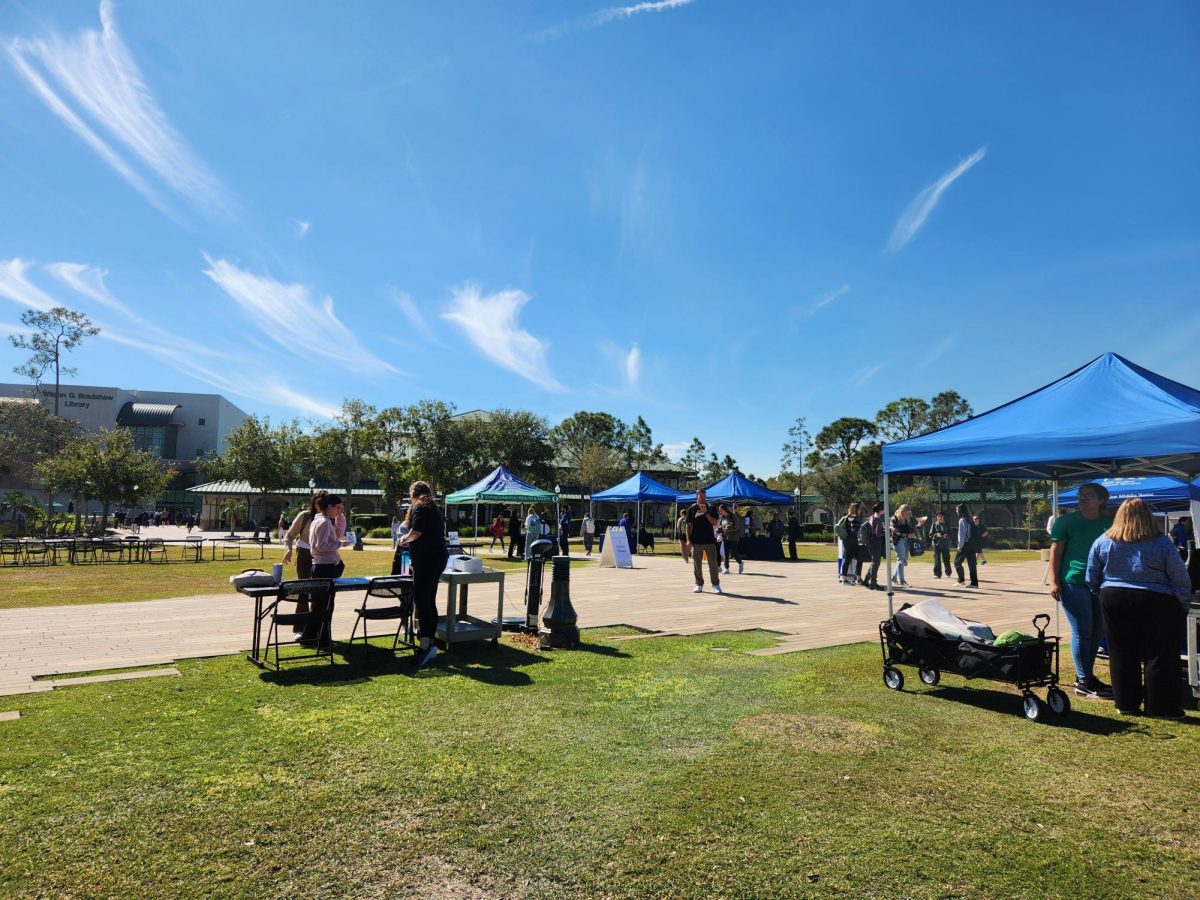FGCU students and staff were in for a surprise at noon Monday when a fire alarm went off, and they were forced to evacuate McTarnaghan Hall.
The cause of the mishap originated in room 211, the building’s cafeteria on the second floor.
“We found it to be some material in the microwave — cooking material,” said Glen Vanbrunt, the division chief for fire training at the San Carlos Fire Department. “Someone tried to cook something, and it burned. It transmitted through the heating and air conditioning system, and that’s how the smoke got transmitted throughout the building.”
It was confirmed that the cause of the smoke was not due to a fire or electrical problem with the microwave, and the burnt material was not identified. The smoke from the incident only traveled via the building’s air unit and had to be cleared. UPD and the Lee County EMS arrived shortly after the alarm went off and had the building reopened at 1:06 p.m.
“I was taking the grammar exam,” FGCU student Tammy Falcon said. “I had literally just finished it, about to hit submit, and then the fire alarms went off.”
A faculty member who wished not to be named said that a student was the cause of the incident, as that person was not paying attention to what was being heated in the microwave. The student mentioned has not been identified.
In this particular situation, the fire department was alerted by McTarnaghan’s fire alarm system rather than by FGCU’s UPD dispatch alone.
In the 2015 Campus Security and Fire Safety Report, which was released Sept. 30, only housing policies and regulations regarding fire safety are listed. Public on-campus buildings, such as McTarnaghan Hall, are not listed in this report. More information on fire safety at FGCU can be found on the FGCU website, http://www.fgcu.edu/EHS/fire-drills-fire-alarms-life-safety.
In the case of a fire in housing, buildings are equipped with sprinkler systems and resident assistants are trained to use fire extinguishers for small fires. When the alarms sound in the dormitories, resident assistants and UPD report first to assess the situation, unless it is a true emergency and the student does call the local fire department. More details on this process is described in the report.
“Fire drills are managed by (Environmental Health and Safety) EH&S,” said UPD Chief Steven Moore. “They conduct the fire drills in housing and all other buildings on campus. UPD provides a supporting role in clearing the buildings.”
The report also mentions that annual fire drills occur annually in September. Moore elaborated on this and explained that another drill also occurs in January. Safety inspections, conducted by resident assistants, occur each month in the dorms to ensure that all fire safety equipment is operable, and there are no hazards.
In addition to fire safety, the federally mandated report has been updated to include new information on crime statistics and definitions of various types of assault and domestic violence. Some of the new definitions added are forcible and non-forcible sexual assault, stalking, cyber-stalking and dating violence.
For those involved in these incidents, some resources available are the Dean of Students Office to help press charges or the Abuse Counseling and Treatment hotline at 239-590-7950 off campus, and Counseling and Psychological Services on campus at 239-590-7950. Both of these numbers are staffed 24/7. Student Health Services on campus does not perform forensic rape exams but does provide Plan B emergency contraception and STI/STD tests and treatments.
The report also lists a number of ways to reach different resources: UPD and local emergency departments, suicide hotlines, abuse services, various mental health services, a rape crisis hotline, poison information and family services. A printed version of this report will be available starting Wednesday in Cohen Center, the library and the Welcome Center.
“We try to put it in places where any new students, new employees would have access to them,” Moore said.
This report is also available online at the following website: http://www.fgcu.edu/generalcounsel/files/Campus_Safety_guide15_16_093015.pdf
According to the report, another way to get connected on campus is the FGCU Alert System or the Guardian Eagle app for iOS and Android.
The FGCU Alert System is an emergency alert system that notifies students of emergency situations on campus, dangerous weather and more. To sign up for the FGCU Alert System go to http://www.fgcu.edu/alert/.
The Guardian Eagle app is available free under “Rave Guardian.” Once downloaded, users can enter an Eagle email address to be linked to FGCU. This app gives quick access to emergency campus contact, a safety timer and anonymous tips. Users can create a profile that can detail as much or as little as desired. These profiles are not available to authorities until an emergency situation occurs.
FGCU also offers a number of classes on campus through the Prevention and Wellness Center. Some of the classes offered are TIPS, a class that aims to teach students about intoxication, recognizing the signs, how to help those who are intoxicated and how to intervene in the case of a dangerous situation; Step Up!, a class dedicated to bystander intervention which is all about knowing when to step in and diffuse a dangerous situation; Rising Above Rape Culture, a class about learning what rape culture is and how to combat it; and Sexual Assault: How Men Can Help, a male-only class on how to prevent being accused of inappropriate conduct and how to help those who have been assaulted. FGCU’s UPD dispatch is open 24/7 and easily reached at 239-590-1900 or at its physical on campus location behind Lutgert Hall in the Campus Support Complex.



































